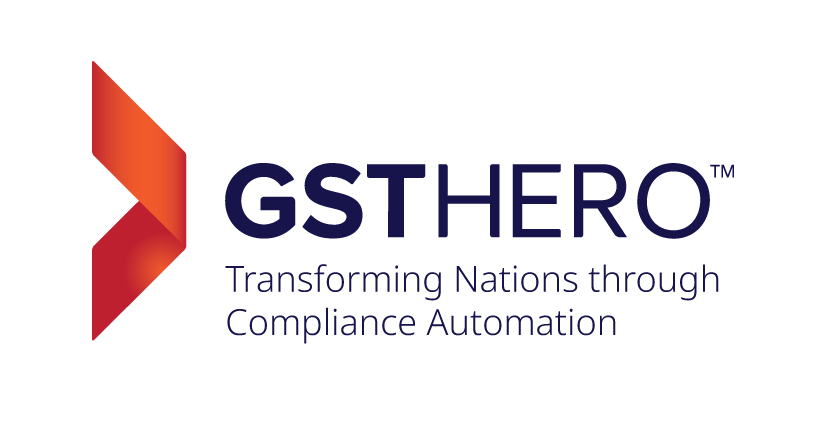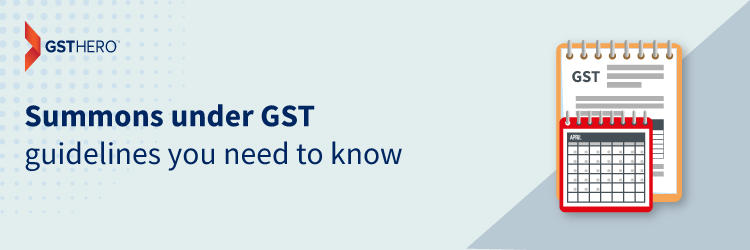In general, a ‘summons’ is a legal document issued by a court/ an administrative agency of the government for various purposes. Summons means to order someone to come to a person or a place. Summons under GST provisions are covered under section 70 of the Central Goods and Services Tax Act, 2017 read with rule 132 of the Central Goods and Services Tax Rules, 2017.
The above referred provision empowers the proper officers to summon any person, during the process of making any inquiry, to give any evidence or to produce any document/ any other thing.
It has been observed by the GST Board that the power so given to the proper officer under section 70 of the Central Goods and Services Tax Act, 2017 is being misapplied.
There are instances where the top officials of the company are summoned for material evidence/ document in a routine manner or summons are being issued simply to call up for the submission of the statutory records like Form GSTR-3B; GSTR-1; etc which are readily available with the department.
In order to ensure judicial and controlled use of the powers, detailed guidelines are being issued by the GST- investigation wing, vide instruction no. 03/2022-23 dated 17th August 2022. The instruction clearly states that non-observance of the same will be viewed seriously.
The current article provides a brief note on the summons provisions covered under GST; explains guidelines instructing the manner to be adopted by the proper officer while issuing summons under GST and also covers guidelines restricting proper officer from issuing summons under GST.
Summons under GST Provisions
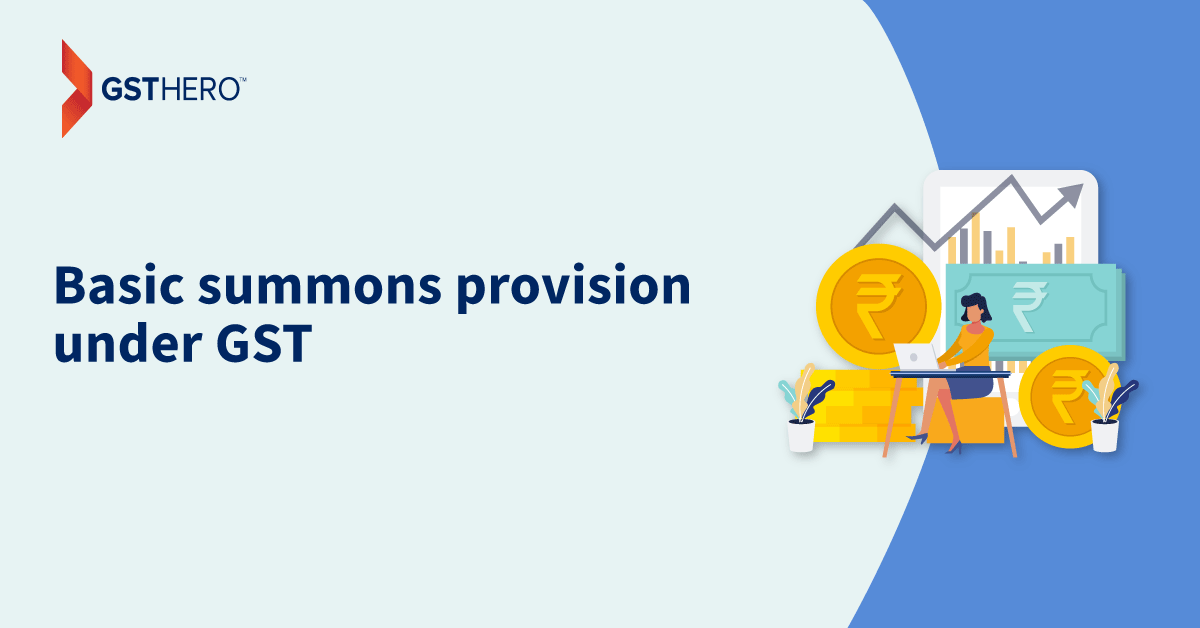
Basic summons provisions are covered under section 70 of the Central Goods and Services Tax Act, 2017. The said provisions are simplified and explained hereunder
- Summons can be issued only by the proper officer;
- Summons can be issued by the proper officer to any person i.e., irrespective of the fact whether the person is registered or not under GST;
- Summons can be issued, in relating to any inquiry, for –
- Obtaining evidence or producing documents (like GST audit reports, contracts, invoices, financial statement etc.); or
- Recording a statement; or
- Seeking personal attendance
- Summons inquiry will be deemed to be the judicial proceedings as per section 193 of the Indian Penal Code and section 228 of the Indian Penal Code;
- Other provisions as applicable in the case of summons inquiry are –
- Section 172 of the Indian Penal Code – Absconding to avoid service of summons/ other proceedings;
- Section 174 of the Indian Penal Code – Non-attendance in obedience to the order from the public servant;
- Omission to produce document/ electronic record to the public servant by a person who is legally bound to produce the same.
Summons under GST: Issued guidelines
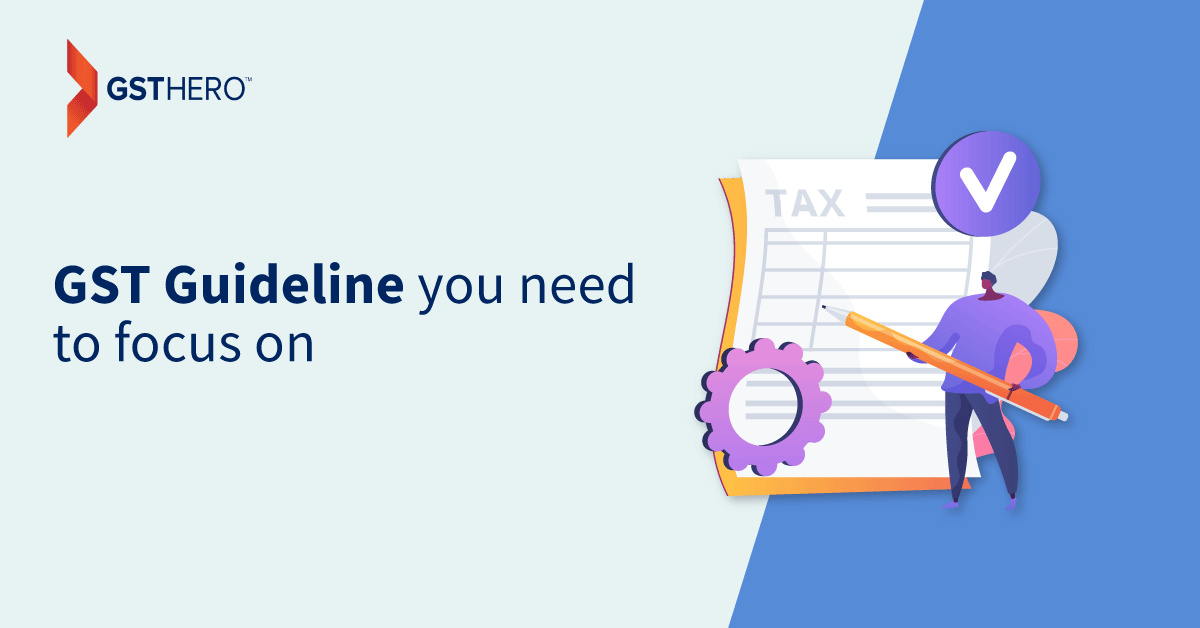
As per instruction no. 03/2022-23 dated 17th August 2022, issued by the GST- investigation wing, the proper officer is required to issue the summons in the following manner
Obtaining prior permission for issuance of summons
It is a general practice that summons is by and large issued by the Superintendents. In such case, prior to issuance of summons, the Superintendents need to mandatorily obtain –
- Written permission from an officer not below the rank of Deputy Commissioner or Assistant Commissioner; or
- Oral/ telephonic permission (only if it is not possible to obtain written permission) from an officer not below the rank of Deputy Commissioner or Assistant Commissioner. However, later on, the said oral/ telephonic permission should be documented.
Specified details to be covered in the summons
Other than all the other basic details, the summons must cover –
- Name of the offender against whom the case is being investigated;
- DIN i.e., Document Identification Number.
Details to be maintained in the summons file
- Records relating to appearance or non-appearance of the summoned person;
- Copy of statement recorded;
- Any other relevant documents.
General GST guidelines
- Summons should be issued to senior management officials like CMD or MD or CFO or CEO etc. only if there are clear indications of their involvement in decision making resulting into revenue loss.
- The summoning officer needs to remain present at the time and date for which the summons is being issued.
- Issuance of the repeated summons should be avoided without properly ensuring the service of the same.
In which situations summons should be avoided
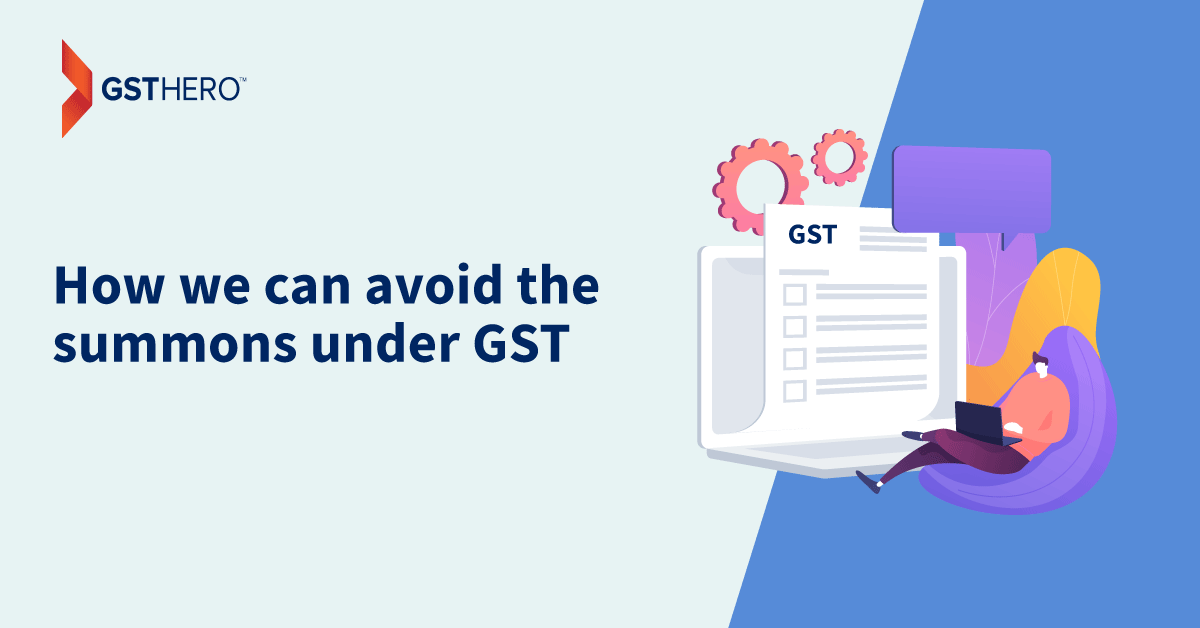
As per the instructions, issuing of the summons should be avoided in the following situations
- Summons should not be issued to call upon submission of statutory documents like Form GSTR-3B, Form GSTR-1, etc. as the same are already available on the GST portal and departmental officers can access the same easily.
- Summons should not be issued at first instance to senior management officials like CMD or MD or CFO or CEO etc.
Summons under GST : Takeaways
The power of issuing the summons available in the hands of the officers was being used haphazardly. Receipt of summons obviously is likely to create mental and physical pressure on the recipients. The guidelines so issued by the GST- investigation wing, vide instruction no. 03/2022-23 dated 17th August 2022, will surely prove to be a breather for the person.

File your GST returns in minutes, not hours!
Get Live Demo and experience the simplicity by yourself.
